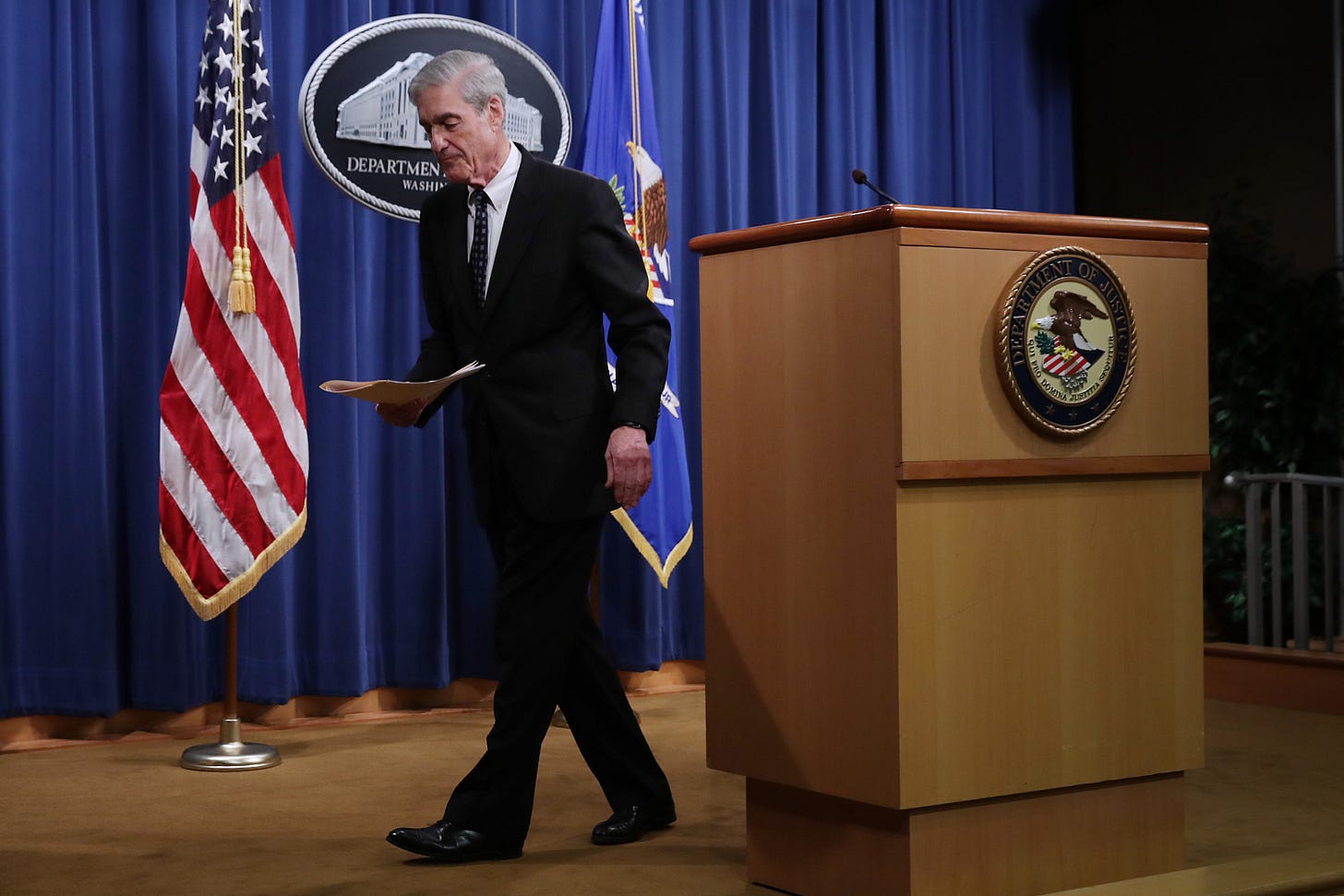Who's Looking at Mueller's 'Underlying Work Product?'
Here’s a guide to all the ongoing investigations into the investigation.

Special Counsel Robert Mueller’s Wednesday press conference concluding his investigation was clear, unambiguous, and direct – with one exception. Mueller told reporters, “Access to our underlying work product is being decided in a process that does not involve our office."
Mueller was upfront in stating that he would not take questions Wednesday and that, were he to testify before Congress, his statements would not expand beyond what was included in his report. The Bulwark contacted the Justice Department for clarification regarding his statement on access but did not hear back.
Which leaves us with a few questions: Whose access? What process? Why? Who’s in charge?
It seems unlikely that we’re talking about public access. The raw records would be much more likely to warrant redaction than the report itself did, especially for harm to ongoing investigations and trials or the possibility of burning investigative and intelligence sources and methods. Moreover, it’s not clear what reason there could be for releasing raw investigative sources to the public which already has them neatly summarized in the Mueller Report.
However, there are three concurrent investigations into the origins of the FBI’s counterintelligence probe of the Trump campaign. The Justice Department’s Office of the Inspector General has been reviewing the Trump-Russia investigation since March and is expected to release its findings in the coming weeks. The same office released a summary of its review into the Clinton email investigation last June. Perhaps the mysterious process could involve what documents from Mueller’s office are referenced in that report.
Attorney General William Barr, who ordered the inspector general’s inquiry, also announced the appointment of John H. Durham, U.S. attorney for Connecticut, to look into what Barr called “spying” on the Trump campaign. Barr is reportedly intimately involved in this investigation, and Trump recently delegated him unprecedented authority to declassify information as part of his probe, including over objections from the intelligence agencies. The “access” Mueller mentioned may be Barr’s declassification efforts, if any are underway.
The first U.S. attorney tasked with looking into the Trump-Russia investigation, John Huber of Utah, was given no such extraordinary power. Nor was the attorney general who appointed him, Jeff Sessions.While Huber’s investigation has been shrouded in mystery, it theoretically continues along with the other two, and there may also be an internal “process” about which documents his investigators are allowed to quote, reference, or publish.
There may also be back-door negotiations with Congress about giving members – perhaps all of them, perhaps only certain committees or even the ranking party members in both houses of Congress trusted with the most sensitive national security information – access to information that could help guide their investigations.
Those are all the possibilities, but without clarification it’s hard to know what Mueller meant.
On Wednesday, Donald Trump tweeted,

Case closed? Doesn’t seem like it.


